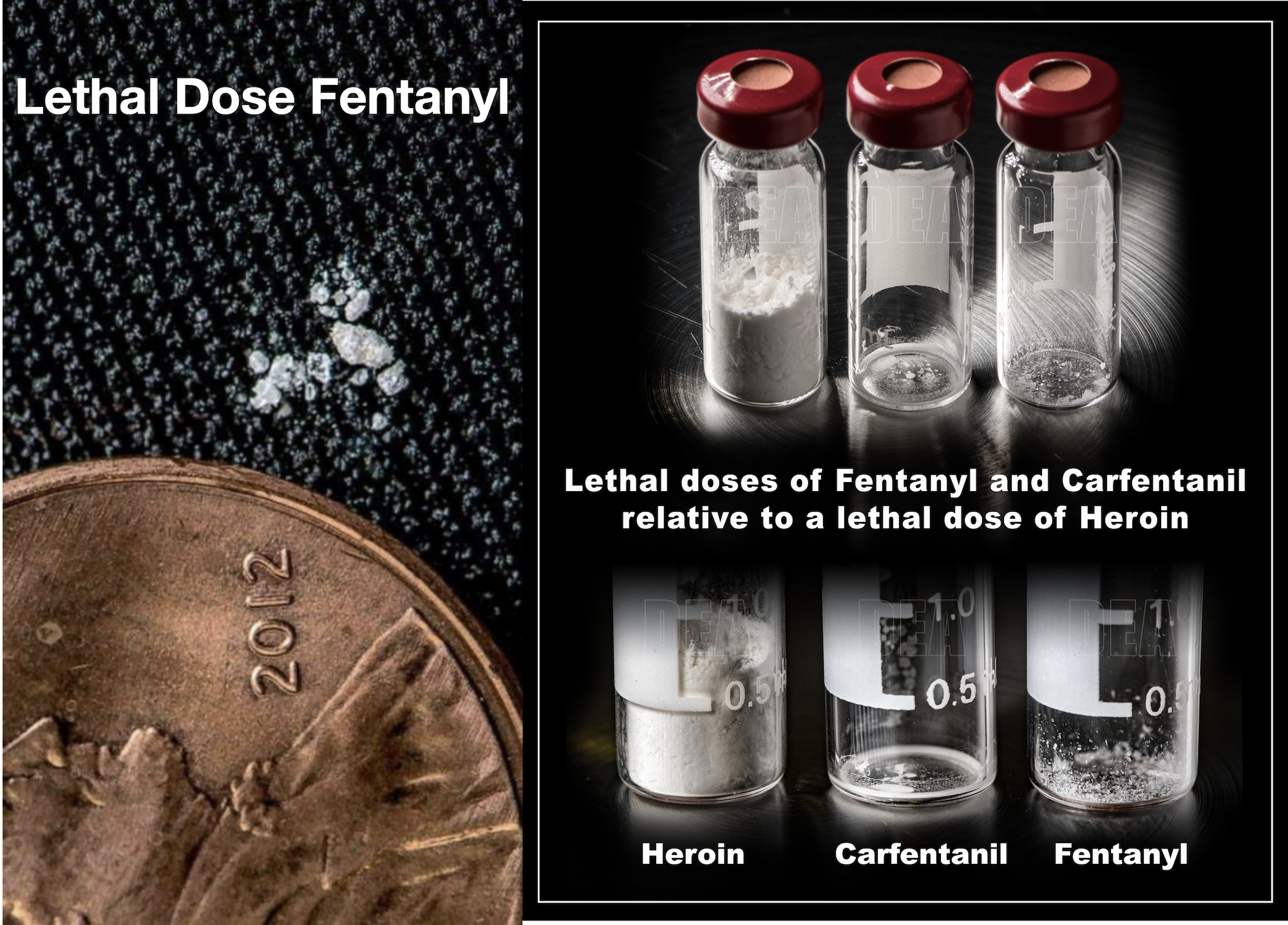
The Drug Overdose Crisis
The Crisis
The rate of fatal drug overdoses has been growing at such a profound rate that it has received the designation of "epidemic" from the Centers for Disease Control and Prevention. In 2017, overdoses became the 6th largest killer in the United States, taking more lives annually than diabetes (68,397 lives), colon-rectal cancer (50,260 lives), influenza/pneumonia (43,970 lives), and motor vehicle accidents (40,100 lives) that year. This number has nearly tripled in the past decade, from 36,010 fatalities in 2007 to over 100,000 fatalities in 2021 and continues to increase. The COVID-19 pandemic accelerated these trends dramatically.
Treatments are Limited
These horrific numbers exist because of complex societal issues, and few medical interventions exist to effectively counter drugs that can lead to overdose. Those that do (e.g., naloxone for opioids), require access to the drug nearby and are also much less effective against new generations of synthetic opioids flooding the illicit markets. The combination of more potent drugs and societal problems make direct medical intervention in overdose problematic.
An Immunological Solution
Using our unique antibody-generating platform, Hepione Therapeutics is developing novel therapies to prevent deaths from opioids and other drug overdoses. Antibodies provide longer-term protection that is “carried with” a potential victim, removing the dependence on compliance and availability of treatments. Highly specific antibodies do not cross-react with other opioids used in pain management. Antibody therapy is limited in duration, for example, to vulnerable periods for relapse such as after exiting treatment centers.
While current technologies have failed to produce immunotherapeutic products against small molecules like drugs, our proprietary technology has produced substantial protection in preclinical models of overdose.

Fentanyl Drives the Overdose Crisis
“If we’re talking about counting the bodies, where they lie, and the cause of death, we’re talking about a fentanyl crisis.”
Our current efforts in the area of anti-overdose immunotherapeutics focus on fentanyl. One of the main reasons for the rapid escalation in opioid-involved deaths is the widespread availability of illicit fentanyl. A synthetic opioid with a potency 100 times that of morphine, fentanyl is prescribed medically to manage the extreme pain of cancer patients, patients in hospice, and surgical procedures. Today, fentanyl is often found spiked into other drugs to mask their impurity. 2-3 mg of fentanyl, equivalent to several grains of salt, delivers a lethal dose to an average-sized adult. In 2007, fentanyl involvement accounted for approximately 11% of overdose fatalities. In 2021, fentanyl involvement accounted for approximately 65% of all fatalities.
Fentanyl acts by binding the μ-opioid receptors (MOR) with higher affinity than prescription opioids or heroin, causing sedation, vomiting, and severe respiratory depression at high doses. Because of this high affinity, treatment of fentanyl overdose with competitive opioid receptor antagonists, such as naloxone (i.e. NARCAN®) is often ineffective. Multiple doses of naloxone are needed (due to the long half-life of fentanyl), and often not delivered in time. Patients overdosing on fentanyl often present with Wooden Chest Syndrome (WCS), where the drug causes the muscles of the chest walls and abdomen to become rigid, rendering chest compressions from CPR useless. Current prophylactic approaches to combat overdose have poor compliance.

A Fentanyl Antibody to Prevent Overdose
Hepione has produced monoclonal antibodies protecting from fentanyl overdose.
Hepione uses the novel, proprietary VAST technology to create immune responses against opioids and other drugs of abuse. Fent-VAST elicits potent antibodies that target fentanyl. Combined with our new Hyper Speed antibody selection pipeline, those antibodies can be quickly and efficiently identified and produced.
Initial preclinical data with Fent-VAST has achieved:
(1) high titres and memory
(2) consistency in immune responses across individuals
(3) trapping of drugs in the blood and blocking transit to the brain
(4) ultra-high affinity, selective antibodies with enzyme like binding pockets that surround the drug
(5) complete protection of individuals to near lethal challenge with fentanyl with monoclonal antibody therapy.
Hepione was awarded a SBIR Phase I grant from the NIH to continue development of immuno-therapy to prevent fentanyl overdose toward clinical trials.





